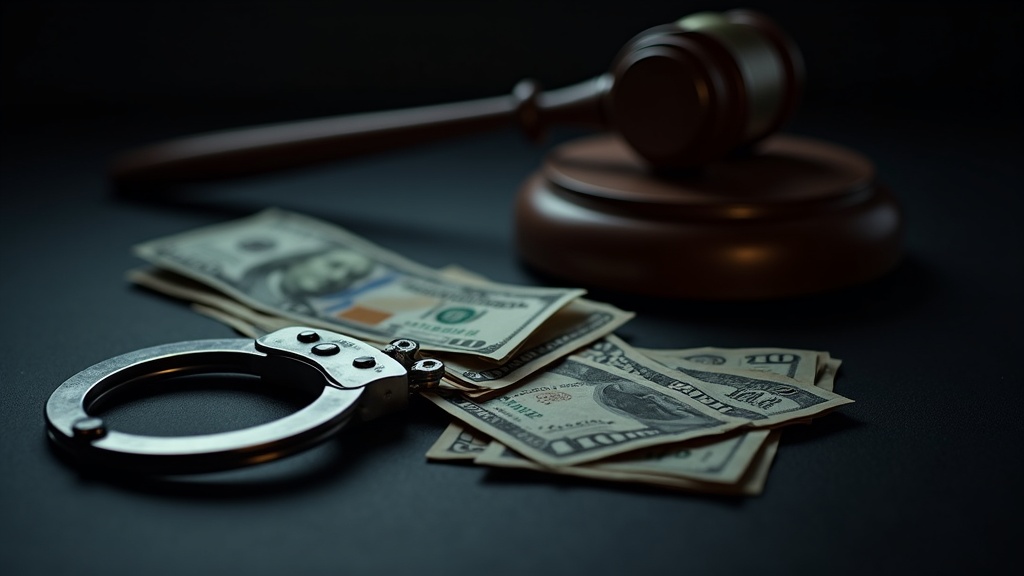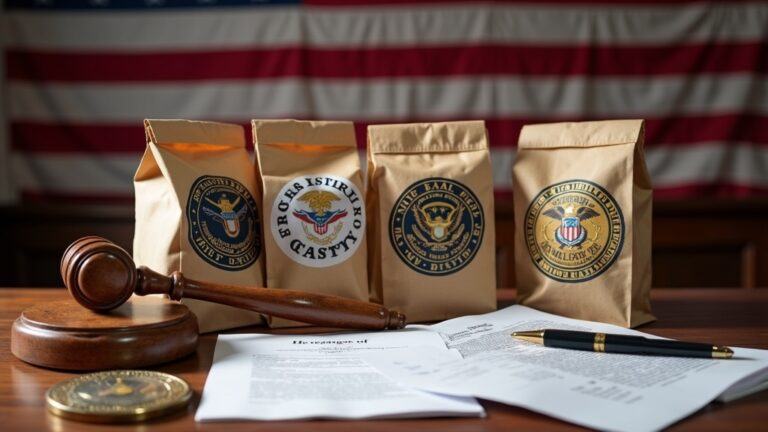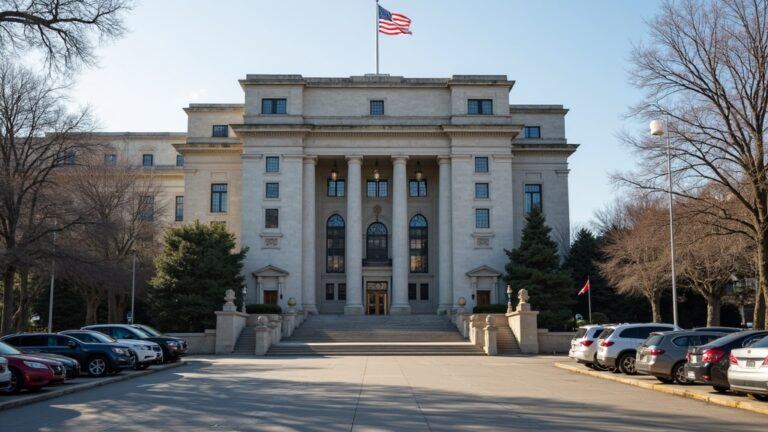Introduction
Money laundering comes with tough consequences that go way beyond just fines or a small slap on the wrist. The penalties for laundering money can change someone’s life forever and switch up how businesses operate.
Law enforcement takes this crime pretty seriously because it’s not just about hiding a bit of shady cash—it’s often tied to gangs, drug rings, terrorist funding, and global corruption. That’s why governments stay on high alert and treat it as a direct threat to economies and national security.
If you’re curious about what’s at stake when it comes to money laundering, this guide breaks down what you need to know—from what counts as laundering to the range of penalties you could face in the U.S. and around the world.
Understanding the Legal Consequences Of Money Laundering is crucial for everyone.

Table of Contents
Why Money Laundering Matters to Law Enforcement
Money laundering is a major concern because it makes dirty money look legit. The process often hides cash earned from some pretty serious crimes—think drug trafficking, arms dealing, human trafficking, and funding terrorism.
That means money laundering isn’t just about sneaky financial tricks. It’s a big driver for criminal organizations, letting them finance future crimes or blend in with regular businesses.
Governments worry about laundering because it can mess with the fair economy, threaten global stability, and pose real risks for banks and the public.
When launderers use the financial system, they make it tougher to fight crime and keep investments safe. These laws and penalties exist so authorities can reduce the influence of criminals on the economy, and that’s why law enforcement treats laundering as a major threat.
The Legal Definition of Money Laundering
The basics of money laundering involve taking money earned from criminal activity and making it look like it comes from a clean source. Both international law and U.S. law (Title 18 §§1956 and 1957) define it as any process that hides or covers up where illegally obtained cash came from.
A key detail is that there’s a difference between the original crime (a “predicate offense” like drug trafficking or fraud) and the act of laundering. Prosecutors can charge someone with money laundering even if they weren’t the ones who did the original crime—as long as they helped to hide criminal money or profits.
- Placement: This is when dirty money first enters the financial system, like depositing a large amount of cash or buying gambling chips.
- Layering: Here, the money gets moved around, often in complicated transactions that blur its path and origin. Examples are wire transfers, overseas accounts, or shell companies just for moving cash.
- Integration: At this step, the laundered money gets put back into the economy as seemingly legitimate funds—maybe as real estate, luxury goods, or businesses.
A key detail is that there’s a difference between the original crime (a “predicate offense” like drug trafficking or fraud) and the act of laundering. Prosecutors can charge someone with money laundering even if they weren’t the ones who did the original crime—as long as they helped to hide criminal money or profits.
Major U.S. Laws and Global Frameworks
Money laundering is covered by several key U.S. laws and international standards. Among the most important:
- Bank Secrecy Act (BSA): Makes banks keep detailed records, report big money transactions, and report anything suspicious.
- USA PATRIOT Act: Cranked up anti-money laundering (AML) requirements after 9/11 to prevent terrorist financing.
- Title 18 U.S. Code (§§1956, 1957): Details the actual criminal statutes about laundering, including penalties.
Globally, the Financial Action Task Force (FATF) puts out standards for anti-laundering efforts. Many countries partner up through treaties and cross-border groups so investigators can share info and even freeze assets internationally.
Serious enforcement of these laws pushes companies—and individuals—to stick closely to the law, because failing can bring massive penalties or even criminal charges worldwide.
Money laundering is covered by several key U.S. laws and international standards. Among the most important:
Criminal Penalties for Money Laundering
Getting caught laundering money comes with a lot more than just a slap on the wrist. U.S. law allows prison sentences up to 20 years for each count.
Famous criminals busted for big drug, fraud, or corruption cases often end up behind bars for over a decade. On top of jail time, fines can go as high as $500,000—or double the value of whatever was laundered.
That means huge penalties even on relatively small schemes. Authorities can also seize a launderer’s assets, including homes, vehicles, bank accounts, or businesses if they were linked to illegal money.
The consequences don’t stop there. A criminal conviction means losing licenses, getting banned from working in certain industries, losing the right to run businesses, or being kicked out of the country for non-citizens.
The consequences don’t stop there. A criminal conviction means losing licenses, getting banned from working in certain industries, losing the right to run businesses, or being kicked out of the country for non-citizens. The ripple effect changes lives and careers forever.
Civil and Regulatory Penalties
Even when criminal charges don’t stick, the government can target assets through civil forfeiture. If there’s a suspicion property is involved in money laundering, it can be seized without a criminal conviction.
Regulatory agencies like the Treasury’s Financial Crimes Enforcement Network (FinCEN) and the Office of the Comptroller of the Currency (OCC) go after banks, casinos, real estate firms, and cryptocurrency businesses that fail to follow AML rules.
Regulatory agencies like the Treasury’s Financial Crimes Enforcement Network (FinCEN) and the Office of the Comptroller of the Currency (OCC) go after banks, casinos, real estate firms, and cryptocurrency businesses that fail to follow AML rules. Some high-profile regulatory actions:
- HSBC paid $1.9 billion for not stopping drug cartels from moving dirty money through its branches.
- Danske Bank came under fire for handling over $200 billion in questionable transactions with little oversight.
- Wachovia was slapped with major penalties for not spotting money flowing in from drug dealers.
Regulators may force companies to rebuild compliance programs and pay millions in penalties. News of these actions can tank a company’s stock price, and many clients and partners may simply walk away, leaving reputations badly damaged.
Even small businesses can end up in trouble if they don’t take compliance seriously, showing how important it is to understand and follow anti-laundering rules.
Even small businesses can end up in trouble if they don’t take compliance seriously, showing how important it is to understand and follow anti-laundering rules.
Liability: Who Can Be Held Accountable?
The law doesn’t just go after crime bosses. It also targets:
- Direct actors: People who move money, commit fraud, or make deals using illegal funds.
- Complicit employees: Bankers, tellers, or workers who help make laundering possible (even by looking the other way).
- Professional enablers: Accountants, attorneys, real estate brokers, or consultants who knowingly help disguise the source of funds.
- Companies and corporations: If a company ignores red flags or skips real anti-laundering programs, it could be hit hard with fines or even prosecuted.
The law works to plug all the gaps criminals use, so anyone playing a role in the scheme can get swept up in enforcement.
Several factors make laundering charges much more serious in the eyes of courts:
Aggravating Factors That Raise the Stakes
Several factors make laundering charges much more serious in the eyes of courts:
- If funds came from terrorism, drugs, or human smuggling
- Large dollar amounts or especially intricate laundering webs
- Use of foreign accounts, shell companies, or other tools to hide money trails
- Past criminal record or a pattern of repeated lawbreaking
Judges hand out steeper sentences when someone worked to hide money from dangerous organizations or made their schemes especially tough to untangle.
Consequences Beyond Jail and Fines
The fallout from laundering charges doesn’t stop at prison or fines. People or companies can see their reputations shredded—sometimes for good.
After being named in a laundering case, it becomes tough to get hired, partner up, or even open a regular bank account.
Some are denied visas, stopped at borders, or placed on government watchlists because of records linked to laundering. There’s also a strong possibility of ongoing monitoring by law enforcement, especially if organized crime or international cash flows were involved.
Financial exclusion is a real danger after a conviction. With a tainted record, it may become impossible to borrow money, sign leases, or even use basic payment services, which can affect both individuals and their families. Remaining alert is key, as the effects go far beyond initial penalties.
How Authorities Chase and Prosecute Cases
Breaking up a laundering operation takes teamwork between Homeland Security Investigations (HSI), the FBI, IRS-Criminal Investigations (IRS-CI), the Department of Justice, and FinCEN.
Investigators rely on suspicious activity reports (SARs) from banks, subpoenas, wiretaps, and undercover work.
Many cases are settled through plea bargains or deals, with prosecutors offering lighter sentences to people who share evidence about larger criminal organizations.
Defenses and Legal Challenges
If you face laundering charges, there are a few common defense moves you might see:
Claiming you didn’t know the money was illegal or were misled by someone else, entrapment—when police overstep and bait a suspect in unfair ways, or attacking procedure, like accusing police of improper searches or ignoring legal steps.
- Claiming you didn’t know the money was illegal or were misled by someone else
- Entrapment—when police overstep and bait a suspect in unfair ways
- Attacking procedure, like accusing police of improper searches or ignoring legal steps
But judges and prosecutors often demand real proof of intent, and digital trails or banking records can make it tough to win just by denying knowledge. Civil forfeiture cases are even harder to fight, since the government doesn’t have to meet the strict burden of criminal law.
How to Avoid Getting Caught Up in Laundering Schemes
For businesses and individuals, staying ahead of trouble makes sense. Companies should set up anti-money laundering (AML) programs that keep employees informed, catch red flags, and pass on anything fishy to authorities.
The Know Your Customer (KYC) process—which means checking and documenting client info—is a major step for dodging criminal attempts.
People should keep an eye out too. Signs of trouble include being asked to move money through your bank, random job offers with big money and little work, or requests to hide info from bank staff. If something feels sketchy, trust your gut.
The Real Price of Money Laundering
Law enforcement treats money laundering as a real threat since it’s the fuel that powers organized crime, funding terror and corruption. The penalties add up fast: long prison sentences, massive fines, lost homes or bank accounts, and years of close monitoring. The damage continues with reputational hits, bans on travel, and roadblocks to even basic banking. The message is clear: playing around with illegal cash can ruin lives in ways most people don’t understand. Staying alert, following the rules, and making smart compliance choices are the best ways to avoid being another cautionary tale.
The Real Price of Money Laundering is devastating. Law enforcement treats money laundering as a real threat since it’s the fuel that powers organized crime, funding terror and corruption. The penalties add up fast: long prison sentences, massive fines, lost homes or bank accounts, and years of close monitoring.
The damage continues with reputational hits, bans on travel, and roadblocks to even basic banking. The message is clear: playing around with illegal cash can ruin lives in ways most people don’t understand. Staying alert, following the rules, and making smart compliance choices are the best ways to avoid being another cautionary tale.
If you feel like you need to report a crime involving money laundering, please don’t hesitate to contact your local law enforcement or, if in the United States, reach out to the Homeland Security Investigations or the Federal Bureau of Investigations.
Contact Us:
If you need to contact us for any reason, please feel free to do so here!






